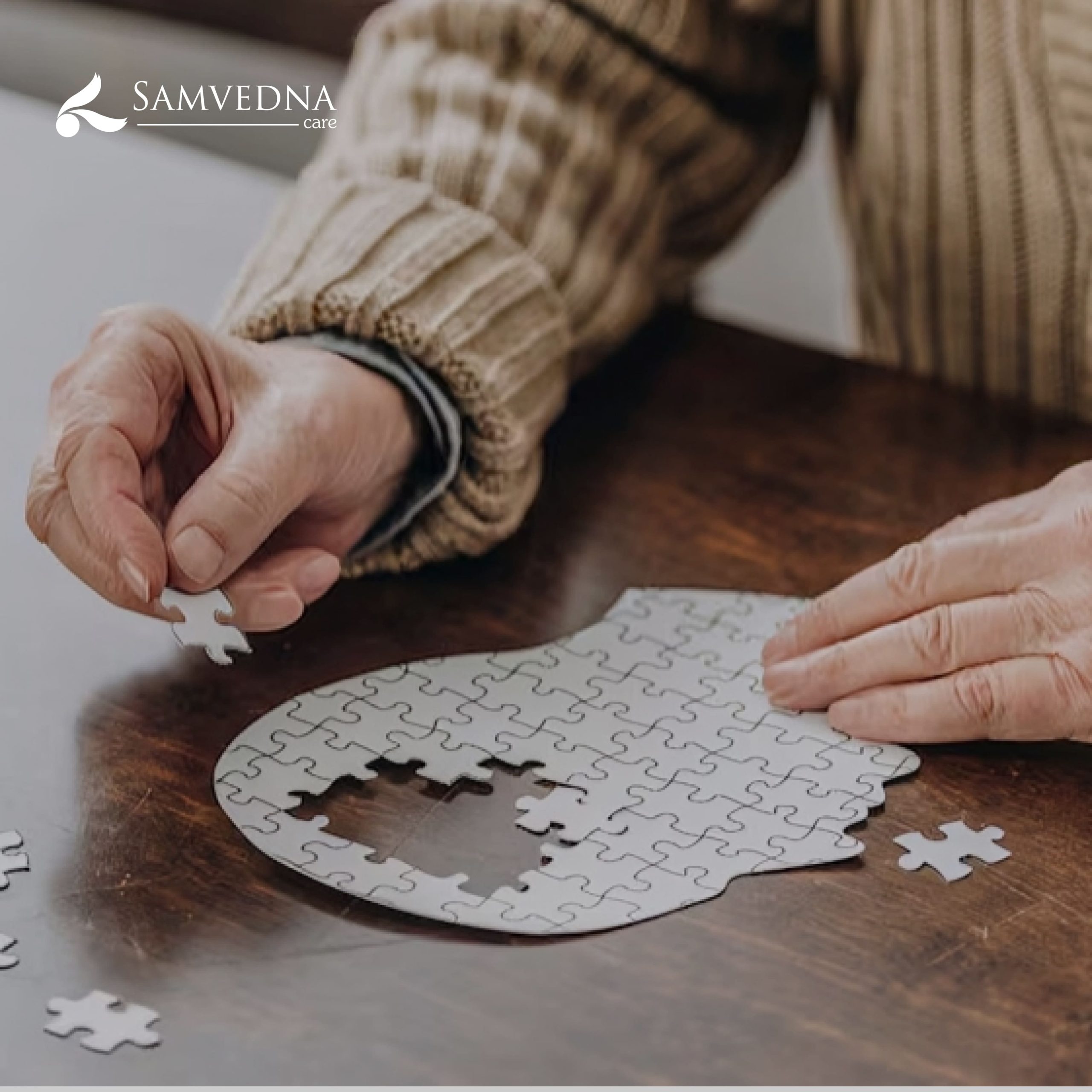Contact Us




Delirium and dementia are conditions that profoundly impact cognitive functions and can significantly affect an individual’s quality of life. The support of family members and caregivers is not merely beneficial—it is often essential. At Samvedna Care, we understand the vital role that loved ones play in managing these challenges. We offer insights into how families and caregivers can effectively support individuals experiencing cognitive impairments and provide strategies to improve care and enhance quality of life.
Understanding delirium and dementia:
Delirium and dementia are two distinct conditions that affect cognition and mental functioning, yet they often get conflated due to overlapping symptoms. Understanding the differences between them is crucial for accurate diagnosis, effective treatment, and appropriate care.
Delirium
1. Delirium is an acute, often sudden, change in mental status characterized by confusion, impaired attention, and fluctuating levels of consciousness. It is a medical emergency that usually arises in response to an underlying medical condition or a stressful event.
2. Causes: Delirium can result from a variety of factors, including:
3. Symptoms:
Dementia
1. Dementia is a chronic, progressive decline in cognitive function that interferes with daily life. It is characterized by a gradual onset and a steady deterioration of cognitive abilities over time.
2. Causes: Dementia encompasses a range of disorders, with Alzheimer’s disease being the most common. Other types include:
3. Symptoms:
Key Differences Between Delirium and Dementia
The Role of Family and Caregivers in managing dementia and delirium:
1. Early Detection and Diagnosis
Family members are often the first to notice changes in their loved one’s behaviour or cognitive abilities. They can monitor changes in behaviour, cognition, and physical health and promptly report these observations to healthcare providers, which is crucial for early diagnosis and intervention. Early detection can significantly improve the management and progression of dementia and other cognitive disorders.
2. Daily Care and Supervision
Daily care and supervision are essential for individuals with dementia and delirium. Caregivers assist with activities of daily living such as bathing, dressing, eating, and managing medications, helping maintain the individual’s dignity and quality of life.
Incorporating dementia care services can greatly enhance the effectiveness of caregiving. These services provide specialized support tailored to the unique challenges associated with dementia, including personalized care plans, skilled management of symptoms, and interventions designed to promote cognitive and emotional well-being. By integrating dementia care services, families and caregivers can access additional resources and expertise, ensuring a higher standard of care and support for those affected by these conditions.
3. Emotional Support and Companionship
Emotional support and companionship from family members and caregivers can significantly impact the well-being of individuals with cognitive disorders. Engaging in meaningful activities, providing reassurance, and fostering a positive environment can reduce anxiety, improve mood, and make them feel less isolated.
4. Managing Behavioural and Psychological Symptoms
Behavioural and psychological symptoms such as aggression, agitation, depression, and anxiety are common in dementia. Caregivers play a key role in managing these symptoms through non-medicinal approaches such as structured routines, stimulating activities, and environmental modifications.
5. Education and Training
Education and training are critical components for effective caregiving. Understanding the nature of cognitive disorders, their progression, and management techniques can empower caregivers to provide better care.
The role of family and caregivers in managing delirium and dementia is crucial. Their involvement helps with early detection, daily care, emotional support, behavioural management, health monitoring, education, and future planning. Organizations like Samvedna Care play an important role in supporting caregivers by providing comprehensive cognitive assessments and services, ensuring that individuals with mental disorders receive the best possible care. Through a collaborative approach, the challenges of these conditions can be managed more effectively, improving the quality of life for both patients and their families such as Samvedna Care offers dementia care services that include caregiver training programs to equip family members with the skills needed to provide effective daily care. We also facilitate support groups and counselling services for both patients and their families, promoting mental health and emotional resilience. Additionally, Samvedna Care offers educational workshops and resources to help families and caregivers stay informed.
Check your mental wellbeing here and get a complimentary consultation with our team.